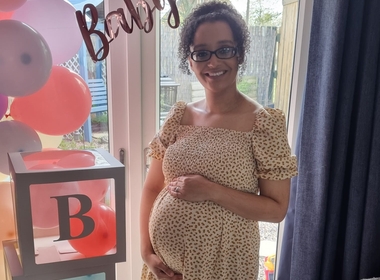This section of the Amplifying Maternal Voices Toolkit looks at how groups and organisations can demonstrate the impact of local initiatives. Ideas here may be useful for those seeking funding or to highlight gaps in current perinatal mental health services.
The following themes came up in various conversations and sessions with MMHA lived experience champions, local contacts and members:


“I was filled with anxiety after the birth of my second child. I finally told my GP but my experience with them felt like a tick box exercise. I filled in one questionnaire and was prescribed antidepressants. No other support was offered."

“I do worry for other women experiencing perinatal OCD. Awareness and understanding need to increase among healthcare professionals, because early intervention is vital to good outcomes.”

“Thankfully, where I lived I could access a lot of helpful services for my anxiety. I also received a lot of parenting support through my health visitor and children’s centre. I know I’m one of the luckier ones..."

“The scariest part of my PND was the intrusive thoughts I had about harming my baby. I told my great mental health midwife what had been happening and felt a huge amount of relief just having this conversation. I was referred to my local PMH team."

"Throughout my first pregnancy I experienced OCD, anxiety and low mood. I spoke to 11 different professionals before I received help. When I finally met with a perinatal mental health nurse everything changed for the better."

MumsAid provides free, accessible, therapeutic support for pregnant women and new mothers in South East London who are experiencing emotional or mental health difficulties and also offers a specialist, holistic support service, YoungMumsAid.

Hear from a member of the Birth Companions Lived Experience Team, who was supported by Birth Companions when she was pregnant in prison.

This video charts the origins of the MMHA, celebrates improvements in perinatal mental healthcare achieved over the past decade, and Lived Experience Champions reflect on key moments of involvement.
For example, use lots of different languages or visuals
This will bring what you’re saying to life
For example, research commissioned by the MMHA shows that the economic cost to society of untreated perinatal mental health problems far outweighs the cost of providing appropriate services.
This will help you meet different people's needs. For example, you could use attention grabbing short videos.
Get creative where possible!
For example, does anyone you know have skills to create eye-catching visuals?
This might help make evaluation more equal and less extractive.
Funders may overlook good work if this isn’t built in

Mind and the McPin Foundation Pdf, 503.7kb
Published: December 2019
The Perinatal Peer Support Principles are a set of five values designed to give peer supporters the confidence to create and deliver peer support that meets the needs of women and families affected by mental health problems during pregnancy or the postnatal period.
Please note the MMHA is not responsible for the content of external sites.
Explore the other sections, or head back to the Toolkit landing page.
This section is split into two, looking at examples of the barriers women and families may face to both accessing perinatal mental health services and to local involvement in groups and organisations.
Explore ways to connect with local organisations and advocate for positive changes in perinatal mental health services. Find examples and ideas for local groups and individuals looking to collaborate and influence their local landscape.
Learn how to share stories about perinatal mental health in a safe way. Ideas here may be useful to local groups engaging those with lived/living experience, as well as for people with lived/living experience wanting to tell their stories safely.

This toolkit offers creative ideas and practical tools to empower individuals in shaping perinatal mental health care at the local level.